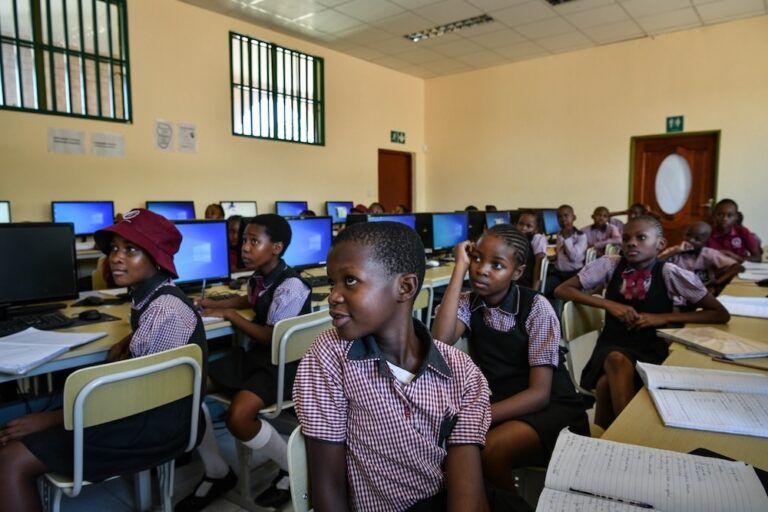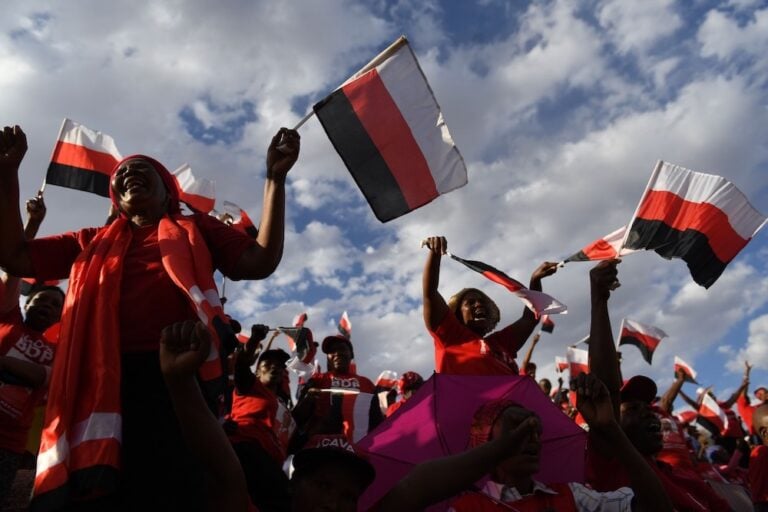Two photojournalists were arrested and released after "cutting a deal" with a police officer, whereby they were forced to delete pictures depicting police harassment.
(MISA/IFEX) – Koone Boikaego, a photojournalist working for the “Echo” newspaper, and another photographer were, on 19 November 2010, arrested and released after “cutting a deal” with a senior police officer, whereby they were forced to delete pictures depicting police harassment.
Boikaego, who was covering the arrival of Emma Wareus, the beauty queen from Botswana who recently won the title of Miss World Second Princess, was busy taking pictures when the senior police officer accused the photographer of pushing him.
“He started to push me, in ‘retaliation’ (. . .) I asked a fellow photographer, Thato Butheledzi, to take pictures of the police officer who was pushing me and I think that is how we rubbed the senior police officer the wrong way,” said Boikaego in an interview with MISA. Boikaego and Butheledzi were taken to the SSKB Police Station, where they were allegedly threatened until they relented and deleted all the photographs of the incident with the officer. Boikaego said, “I did not want to sleep in a cell, so I apologized quickly and agreed to delete the pictures from the cameras.” He added that the police officer informed them that they were not allowed to take pictures of him since this violates his “privacy rights.”
Butheledzi was quoted in the media confirming the incident and said he did not know that he was inviting trouble when he took pictures of the abusive police officer. Butheledzi added that the senior police officer said the journalists “should always obey the police whenever they try to control us because as police operating at the airport they handle sensitive issues.” Efforts to speak to the police were futile as the officer responsible was out of the office.
This is the second incident of this nature within a month since another photojournalist was detained for several hours for refusing to give way to the police. MISA-Botswana is concerned about this new trend in the relationship between the police and the media in Botswana. MISA-Botswana also reproaches the journalists for relenting to the police, thereby denying the public the opportunity to see the pictures. This behaviour is contrary to the principles expressed in the Botswana Press Council code of ethics which reads, “A media practitioner shall at all times defend the principle of freedom of the press and other mass media by striving to eliminate news suppression and censorship”. The code also states that a media practitioner must always work in the best interest of the public and resist undue interference from anybody.


